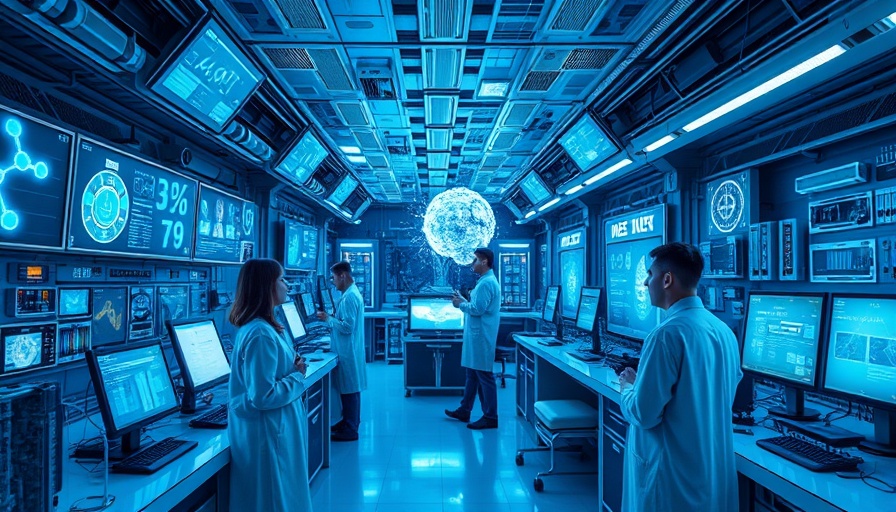
AI Revolutionizes Drug Discovery: A New Era for Healthcare
The landscape of pharmaceutical development is on the brink of transformation, driven by advancements in artificial intelligence (AI) and a concerted effort to reduce animal testing. According to various experts from biotech and contract research organizations, the integration of AI into drug discovery could streamline timelines and significantly cut costs, potentially halving the standard durations of drug development. With the FDA championing this shift, the future of drug approval is changing, promising to bring innovative therapies to patients faster and at a lower cost.
FDA's Vision and AI-Driven Approaches
The FDA has expressed a clear intention to minimize reliance on animal testing, particularly in the development of monoclonal antibodies and other treatments. The agency's strategy anticipates that in three to five years, we may see a preference for AI technologies and alternative models over animal experiments. Experts project that, by harnessing AI, drugs could move from concept to clinical trial in a mere fraction of the current average timeframe—dramatically reduced from 42 months to just 18 months as seen with some successful AI-implemented projects, like those at Recursion Pharmaceuticals.
Understanding 'New Approach Methodologies'
Among the innovations in drug discovery are “New Approach Methodologies” (NAMs) that employ AI, computer-based modeling, and simulations. For instance, companies like Charles River are investing heavily in NAMs, including technologies such as organs-on-chips, which mimic human organ functions to predict drug outcomes. This cutting-edge technology represents a paradigm shift in preclinical testing, showcasing the potential to replace some traditional methods that have long relied on animal testing.
Economic Impact: Lower Costs, Lower Prices
With the promise of reducing development times by over 50%, the economic implications of AI integration in drug development are substantial. Analysts from TD Cowen and Jefferies underline that the expensive journey of bringing a new drug to market could shift dramatically, leading to a reduction from the striking average of $2 billion to something significantly less. This presents a potential for lower drug prices for consumers, aligning well with the FDA’s objectives.
Challenges and Limitations Ahead
Despite the advantages, industry experts caution that these new methodologies are unlikely to completely eliminate animal testing. Regulatory frameworks currently necessitate animal studies to ensure drug safety and efficacy, especially for monoclonal antibodies. This means that while AI will play an increasingly significant role, traditional methods will still be required to confirm the efficacy and safety of many drugs during the approval process.
Taking Action in the AI-Driven Marketplace
As the pharmaceutical industry navigates this pivotal transition, businesses must adapt to the rapidly evolving landscape. By exploring partnerships with providers skilled in implementing these technologies, stakeholders can position themselves favorably in the marketplace. Understand how AI can streamline your operations by integrating faster testing methods and reducing costs through strategic alliances.
For business owners and operators keen to leverage AI technologies in drug development, understanding the implications of this shift is crucial. Embrace these innovative approaches now to not only improve efficiency, but to also get ahead in the competitive pharmaceutical industry.
 Add Row
Add Row  Add
Add 




Write A Comment